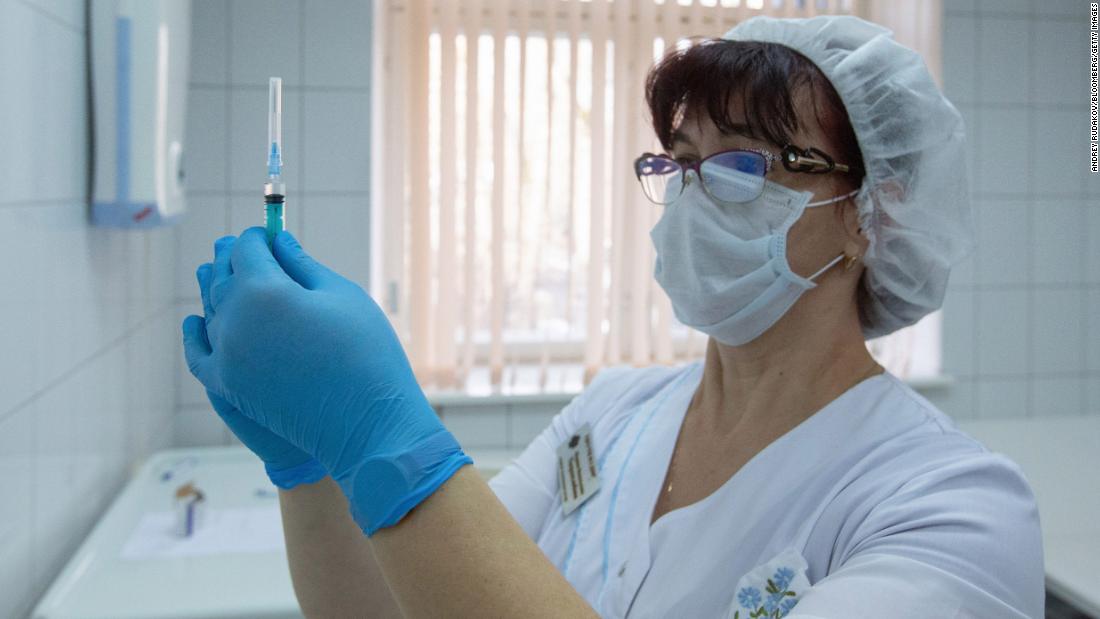The preliminary results were published in The Lancet on Tuesday and are based on data collected from 19,866 participants, of whom about three-quarters (14,964) received two doses of the vaccine and a quarter (4,902) received a placebo.
Sixteen cases of symptomatic Covid-19 were confirmed in the vaccine group 21 days after the participants received the first dose of the vaccine. Sixty-two cases were found in the placebo group – which is equivalent to 91.6% effectiveness.
The trial included 2,144 people over the age of 60 and a subanalysis conducted in this group revealed that the vaccine was well tolerated and had a similar effectiveness of 91.8%.
The team also looked at the effectiveness of the vaccine against severe and moderate Covid-19 disease and 21 days after the first dose, no serious or moderate cases were reported in the vaccinated group, while 20 were reported in the placebo group.
Serious adverse events associated with vaccination were also rare – less than 0.2% in people who received the vaccine. Most of the reported side effects were mild, such as pain at the injection site, flu-like symptoms and low energy levels, according to the study.
The analysis includes only symptomatic cases of Covid-19, however, and the authors note that more research is needed to understand the effectiveness of the asymptomatic vaccine against Covid-19, transmission and how long the protection can last.
Most of the study participants were also white, so more research is needed to confirm the results in other ethical groups. The test is also underway and aims to include a total of 40,000 participants.
Dr. Inna V Dolzhikova, co-lead author of the study, said the analysis suggests that the vaccine has “high efficacy, immunogenicity and a good tolerability profile in participants aged 18 or over.”
Dolzhikova works at the National Research Center for Epidemiology and Microbiology in Russia, Gamaleya, which developed the vaccine.
The people in the study performed Covid-19 PCR tests when they received the second injection. They did a new test if they reported symptoms of respiratory infection.
The Sputnik V vaccine is a two-dose adenoviral vector vaccine that uses two different adenoviruses for each dose, with doses administered 21 days apart. With this type of vaccine, an adenovirus is altered so that it can deliver a piece of genetic material from the virus that causes Covid-19 to the body and cause cells to express the peak induction found in the virus and induce an immune response. It is an approach similar to vaccines developed by AstraZeneca and Johnson & Johnson.
The authors claim that the use of a different adenovirus vector for booster vaccination may help to create a more powerful immune response.
An advantage of adenoviral vaccines is that they do not need to be stored and transported at extremely low temperatures, say the scientists. Sputnik V only needs to be refrigerated and costs $ 10 per dose, according to the Russian Direct Investment Fund, which financed the production of the vaccine and is responsible for selling it globally.
“This is a useful addition to the published data on the effectiveness of the Covid-19 vaccine,” said Dr. Julian Tang, clinical virologist at the University of Leicester.
But he pointed out that “the average follow-up was 48 days from the first dose, so the study cannot assess the total duration of protection”.
The production of the vaccine was financed by the Russian Direct Investment Fund (RDIF), which is also responsible for selling it globally.
The vaccine is already approved in Russia, Belarus, Serbia, Argentina, Bolivia, Algeria, Palestine, Venezuela, Paraguay, Turkmenistan, Hungary, United Arab Emirates, Iran, Guinea, Tunisia and Armenia. Sputnik V has so far been administered to more than 2 million people worldwide.
Russia drew criticism from scientific circles last year when it approved Sputnik V for public use in August – before the crucial Phase 3 tests were completed.
“Despite previous doubts about how the Russian Sputnik V vaccine was launched more widely – before sufficient data from the Phase 3 trial – this approach has been justified to some extent now,” said Tang.
CNN’s Meera Senthilingam, Jamie Gumbrecht, Jessica Firger and Zahra Ullah contributed to this report.
